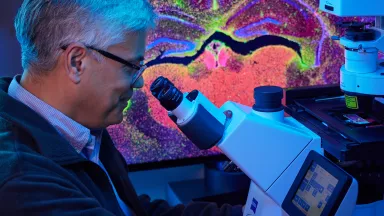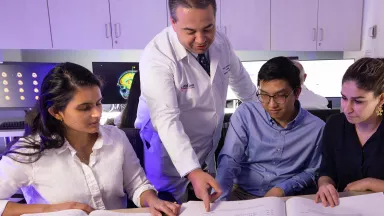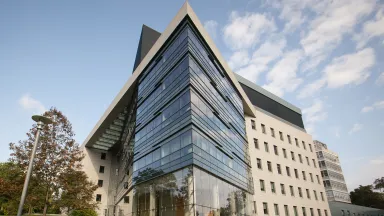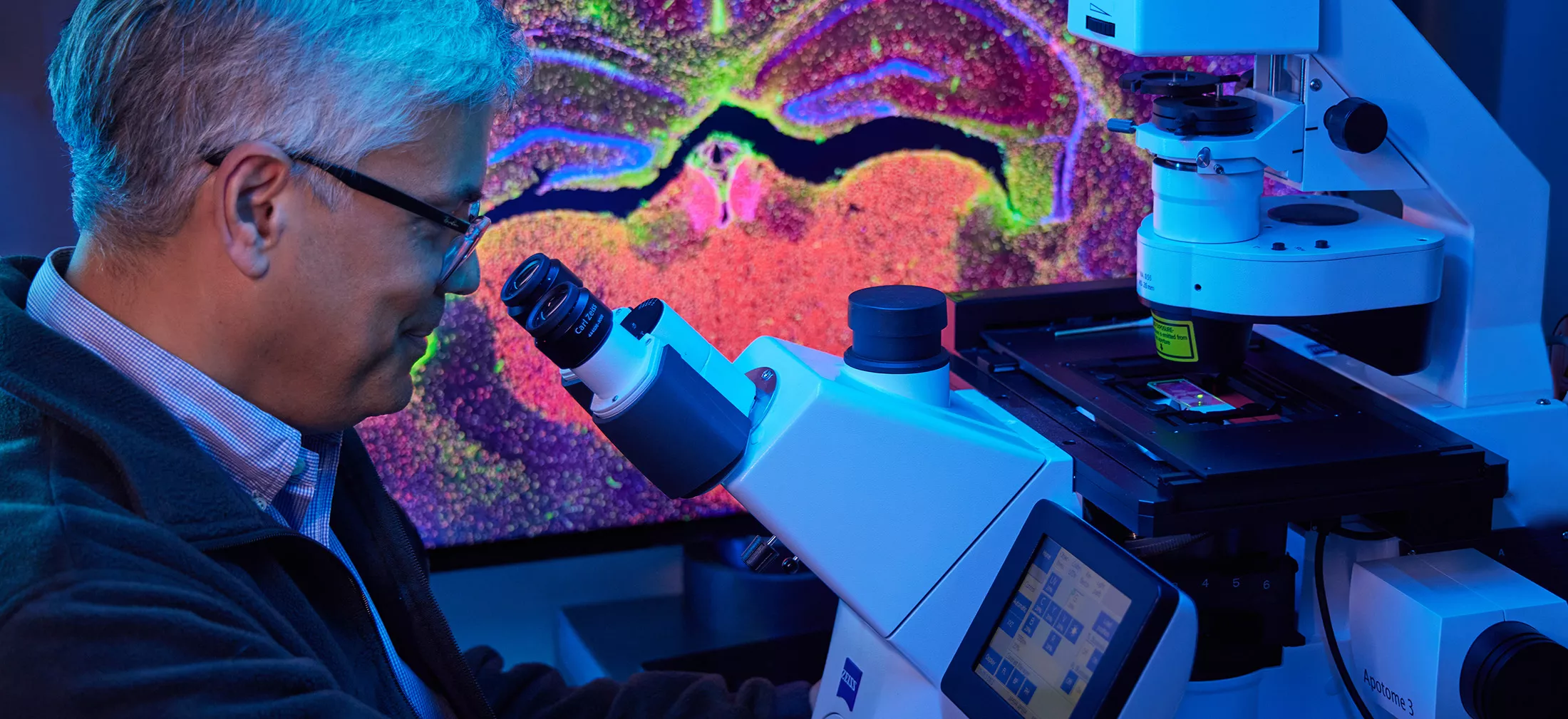
Science at the Heart of Medicine
At The Saul R. Korey Department of Neurology, we have received notable NIH and elite foundation funded grants for the advanced study of one of the widest ranges of neurological diseases worldwide and are also spearheading numerous complementary clinical trial initiatives to further define treatments and discover new and innovative research initiatives and comprehensive programs to prevent, diagnose, treat and cure neurologic diseases. Our internationally-renowned physician-scientists and biomedical researchers continue to pave the way for novel treatments and diagnostic breakthroughs through our novel clinical, translational and basic science research portfolio. This encompasses pioneering work in neurodegenerative diseases, stroke, neuro-oncology, neuromuscular disorders, movement disorders, multiple sclerosis and neuroimmunology, pediatric and adult epilepsy, neurogenetic disorders, migraine, headache and facial pain, sleep-wake disorders, neurotoxicology, pediatric communication disorders, neurological infectious disease, neuropsychology and additional classes of rare disorders. Our Einstein Aging Study, Division of Cognitive and Motor Aging and Center for the Aging Brain have been cornerstones of our aging research focus and unique clinical care models that continue to represent national and international resources for collaborative scholarship, training and breakthrough technologies that extend beyond Montefiore Einstein.
Our interdisciplinary culture has allowed us to develop the paradigm-shifting “lifespan” concept that neurological conditions represent “lifespan disorders”. This has two important implications for advanced diagnosis and treatment. First, with regard to childhood and early onset disorders, we have pioneered the concept and practice that as the brain changes during critical periods of adult life and aging, different treatment modalities are required to most efficaciously provide continuing care. We represent one of the few institutions internationally that focuses on preserving and enhancing neurological functions and quality of life for adult survivors of serious developmental disorders. As medical breakthroughs have increased the median survival of these profound developmental disorders, we offer a destination site encompassing the latest and emerging knowledge, treatments and advanced technologies that offer patients and families hope that their loved ones can lead increasingly productive and fulfilling lives as they age. From our world-defining Center for Autism and Pediatric Communication Disorders to our Center for Rett Syndrome, Center for Neurocutaneous Disorders and the Rose F. Kennedy Center for Intellectual and Developmental Disabilities, as well as the Children’s Evaluation and Rehabilitation Center (CERC), Montefiore Einstein continues to lead the nation and the world in these essential initiatives.
Second, our “lifespan” concept has also enabled us to advance our understanding and management of aging and neurodegenerative disorders. This has led to the revolutionary understanding that both normal and pathological aging may, in fact, start as early as conception, dramatically changing the view that neurodegenerative disorders represent a novel class of developmental disorders, with profound implications for diagnosis and treatment for currently untreatable and rapidly progressive and debilitating disorders. Our revolutionary “lifespan” concept that neurological diseases may appear throughout life, as early as conception, not only allows us to form insights into common mechanisms, but also enables us to identify molecular targets through specialized laboratory studies, develop better treatments, and identify biomarkers for early disease detection as well as advanced diagnostics to track the efficacy of therapeutics. We also have one of the leading neural stem cell laboratories in the world and are at the forefront of emerging technologies employing advanced cellular birth-dating, neural cell fate mapping in single-cell multi-omics analysis incorporating the fields of epigenetics, proteomics, lipid biology and neuroimmune memory states. Through the discovery of the epigenome and by studying advanced molecular technology, we can better understand the complex patterns of genes that control memory and higher-order behavioral functions, with the anticipation that the combination of cellular reprogramming/rejuvenation and dynamic pathological tissue remodeling including the development of biodynamic scaffolds will be utilized to reestablish healthy states from injured tissues.
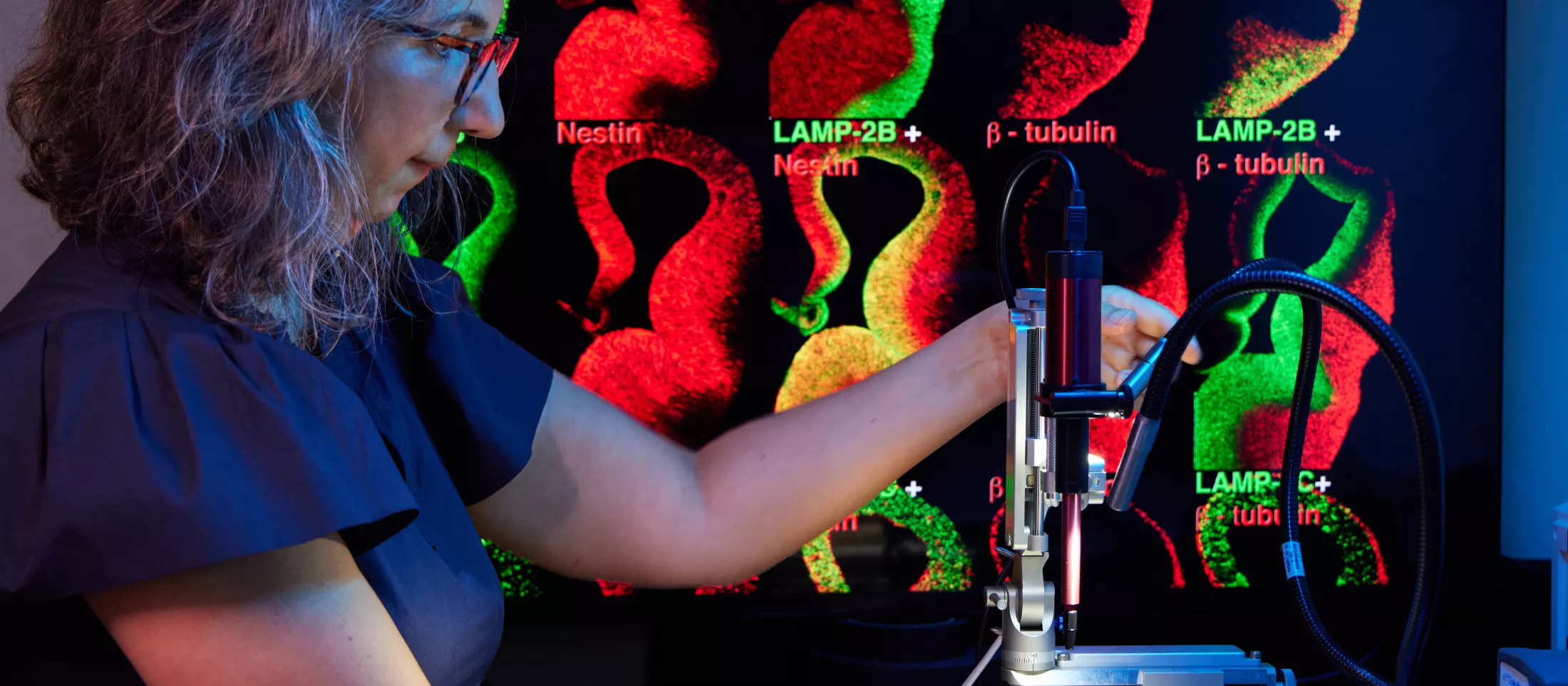
Committed to Finding Innovative Options to Prevent, Diagnose, Treat and Cure Neurologic Diseases
Our leading research programs bring together internationally recognized physician-scientists and biomedical investigators from numerous academic fields to collaborate on basic, translational, and clinical research.
Explore our numerous state-of-the-art research programs.
Center for Autism & Pediatric Communication Disorders
Comprehensive Epilepsy Center
Division of Cognitive & Motor Aging
Division of Neuro-Oncology
Division of Neuromuscular Medicine
Division of Sleep Medicine & Chronobiology
The Einstein Aging Study
Epilepsy Laboratory for Developmental & Traumatic Epilepsy
Institute for Brain Disorders & Neural Regeneration
Isabelle Rapin Division of Child Neurology
Multiple Sclerosis & Neuroimmunology Center
Vascular Neurology
- Migraine
A Phase 2/3 Randomized, Double-Blind, Placebo-Controlled Study to Evaluate the Efficacy and Safety of Oral Zavagepant in Migraine Prevention
-
Start Date
March 29, 2021
-
Conditions
Migraine
- Multiple Sclerosis
Efficacy and Safety of Remibrutinib Compared to Teriflunomide in Participants With Relapsing Multiple Sclerosis
-
Start Date
December 16, 2021
-
Conditions
Multiple Sclerosis
- Glioblastoma
Safety and Immunogenicity of Personalized Genomic Vaccine and Tumor Treating Fields (TTFields) to Treat Glioblastoma
-
Start Date
March 1, 2018
-
Conditions
Glioblastoma
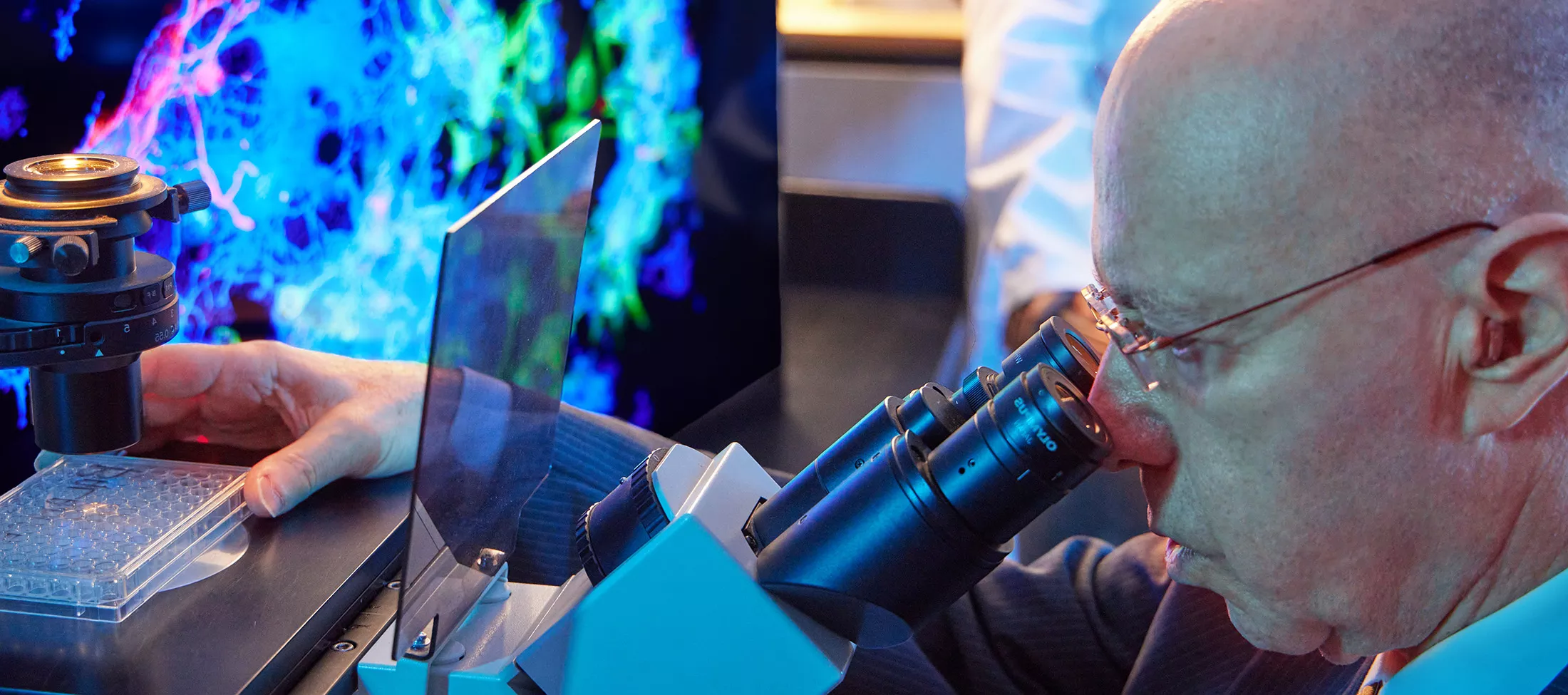
Clinical & Research Training Programs
Through a robust clinical care experience and complementary clinical, translational and basic science research programs, Montefiore Einstein’s Child and Adult Neurology Residency and Subspecialty Fellowship Programs train the next generation of outstanding and sophisticated clinical neurologists, physician-scientists and basic science researchers in a cooperative, state-of-the-art, interdisciplinary environment. Our programs offer residents and fellows unique clinical and research experiences, mentorship and the opportunity to provide care to the community. Our department is committed to the collaboration of patient and provider, and of clinician and scientist. Residents and fellows are exposed to advanced diagnostic and treatment modalities employing advanced and emerging technologies, as well as to active and complementary clinical, translational and basic research opportunities. Our formal scholarly activity program is tailored to enhance resident and faculty engagement in innovative and multidisciplinary scholarly activities. This includes guided mentorship, expanded journal clubs and production of peer-reviewed publications, presentations at grand rounds and other scientific meetings, as well as authored book chapters and textbooks. All adult and pediatric neurology residents are required to fulfill a broad-based scholarly activity program during their residencies.



